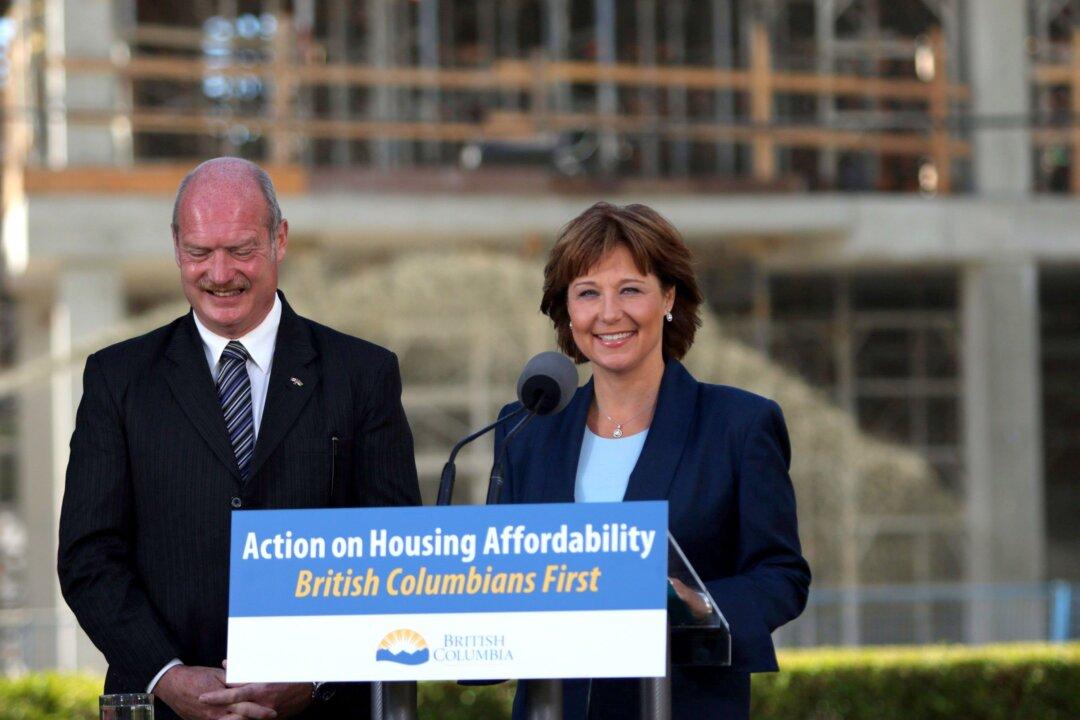VICTORIA—There will be no reprieve from a new tax on foreign buyers who have signed contracts to purchase homes in Metro Vancouver, B.C. Finance Minister Mike de Jong says.
The tax takes effect on Aug. 2, and long-term contracts, such as pre-sale agreements for condos under construction and pending property purchases involving foreign buyers, will pay the new 15 percent tax.
“If the transaction is registered Aug. 2 or afterwards, the tax applies,” de Jong said Tuesday, July 26.
Dan Morrison, president of the Greater Vancouver Real Estate Board, had called on the government to exempt real estate deals that are in the process of closing to minimize short-term volatility in the market.
The new legislation introduced Monday includes an additional property transfer tax on Metro Vancouver residential properties that are purchased by foreign buyers.
On Tuesday, the province also released updated figures from a snapshot of five weeks between June 10 and July 14 indicating that 935 of the 9,636 homes sold in Metro Vancouver went to foreign nationals.





